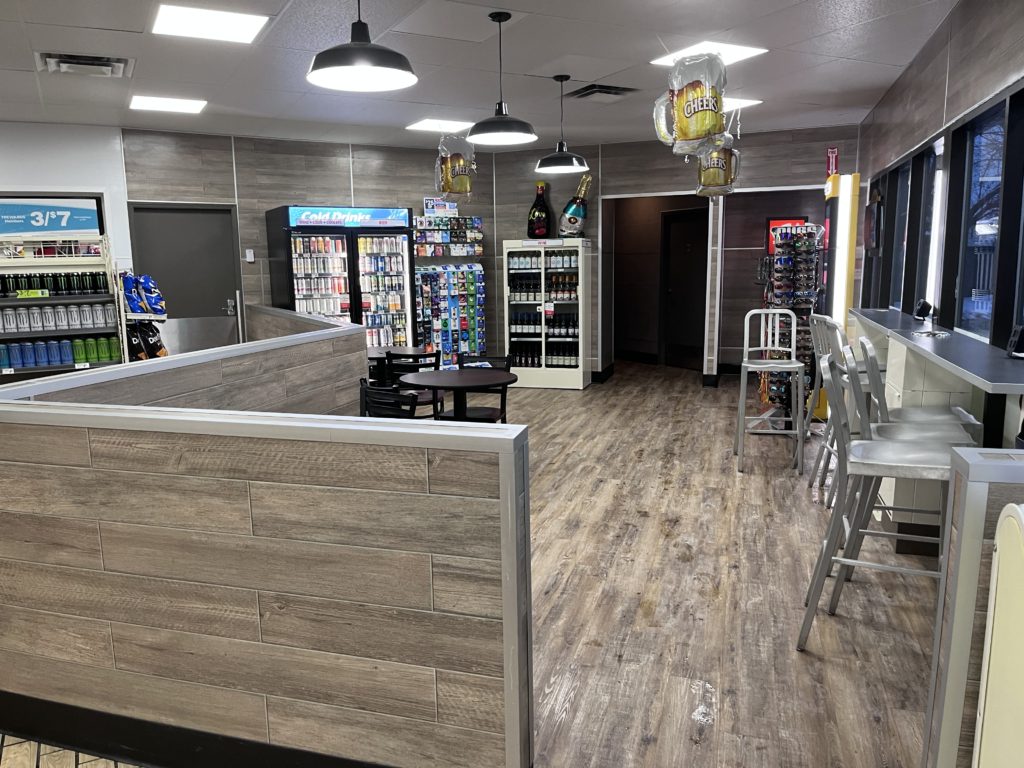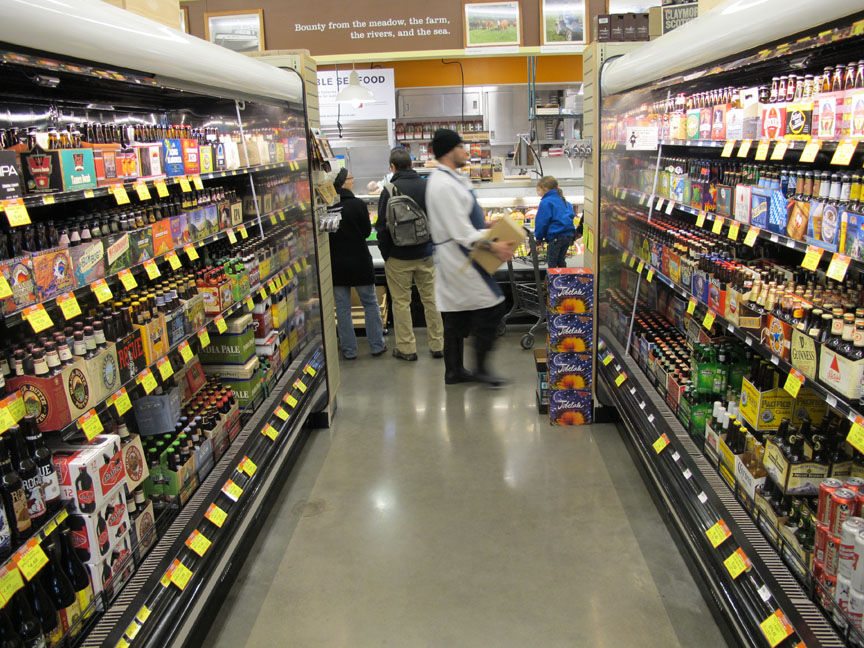Ontario is not my beat. But they seem to be making the most beer headlines recently with their breath-y announcements of allowing beer, wine and ready-to-drink beverages in convenience stores. It seems like it has been Doug Ford’s biggest priority since he was elected, as opposed to – I don’t know – fixing health care. So I thought I would offer a few thoughts no one asked for on the latest development that few Ontarians asked for.
As of tomorrow, convenience stores will legally be allowed to sell beer in Ontario. Over the last couple days there have been fawning articles about the “new era” in the province’s liquor regime. Their words, not mine – just see here. Apparently over 4,000 licenses have been approved in the lead up to the launch. That is a lot of new places to buy beer. Sounds significant. And it is. Just not for the reasons Doug Ford wants it to be.
On the consumer side, having new places to pick up a six-pack of boring macro beer is hardly earth shattering. In Ontario they already have the over 3,000 locations, including LCBO, The Beer Store and hundreds of grocery stores, to find beer. There was no significant consumer demand for being able to grab a few beer along with filling up the gas tank. I imagine for the average consumer either nothing or very little will change. Spontaneous purchasing may shift, but I suspect people will still stick with their routines.
Convenience stores are no boon for local craft beer – most simply won’t carry it. However, it is hardly a threat. Most craft beer drinkers will still find the source for their favourite local offerings. Someone who is used to buying Godspeed’s latest seasonal release is hardly going to switch to Busch Lite because it is on sale at the corner store. When I am in Quebec, having access to beer around the corner is nice in a pinch, but largely doesn’t shift my buying patterns. I usually go to breweries or specialized bottle shops with better selection.
From the consumer side – much like in Alberta – it is a solution looking for a problem. The system largely worked, at least if you wanted corporate macro-beer or one of the larger Ontario craft breweries (don’t get me started on trying to import craft beer from other provinces). It will be a big deal largely because of how the Ontario government rolled it out.
Specifically because they were too busy pandering to a handful of swing voters and swooning from the lobby of the convenience stores, they are both throwing hundreds of millions of Ontarians’ dollars down the drain and throwing a massive industry into chaos, largely for no reason and for no real benefit.
Incompetence has marked this government’s handling of this file. Ford’s initial promise was the now infamous “buck-a-beer”, a policy so ill-considered and unworkable it should go into the hall of fame of bad policy ideas. Ultimately only three breweries took him up on his idea and within months it had died an inglorious death. Ford originally wanted to rip up the Master Framework Agreement (MFA) with the owners of the Beer Store (mostly Canada’s big three corporate breweries), but quickly realized that would billions in penalties.

So rather than develop a long term plan for evolving the industry, he went all-in on knee-jerk reactions. He has expanded the number of grocery stores allowed to sell beer, without really evaluating the market interest in that move. Last fall they announced that they would not renew the the MFA when it expired at the end of 2025 and implemented a multi-year phase-in of convenience store sales. They promptly ripped that plan up in May pushing full implementation to this week.
The financial consequences of this tempestuousness are clear. The government has publicly acknowledged it is providing $225 million to the owners of the Beer Store – again, Canada’s largest corporate breweries – to compensate them for loss in sales. However, reports have indicated they have quietly offered other inducements to industry players, including an additional $375 million to the Beer Store in rebated LCBO fees, $74 million to grocery store owners (you know, Galen Weston and the rest) in reduced licensing fees, and up to $150 million per year in lost revenue by LCBO. Convenience store owners also receive a reduction in licensing fees (to encourage them to reduce the price), for which I have not seen a reliable calculation.
That’s a lot of coin to solve a problem that didn’t exist.
The part no one – other than the LCBO workers’ union this past summer – has talked about yet are the longer term implications of this upheaval. Over the coming years there will be job losses at The Beer Store and at the LCBO retail stores as a portion of the market moves to convenience stores. The Beer Store might become completely nonviable in the coming years and collapse entirely, which, in addition to the job loss, throws Ontario’s bottle recycling system into chaos. The LCBO will lose revenue, as that money flows increasingly to grocery and convenience store owners, negatively impacting its bottom line, which will also impact how much it contributes to Ontario’s coffers for important public services.
I want to say that this will transfer what were good jobs into lousy, minimum wage convenience store jobs, except that I am not convinced convenience stores will hire anyone new to sell liquor. The existing staff will have to sell that along side gas, hot dogs, Slurpies and cigarettes (and take on the well-known increased safety risks due to alcohol retail in that environment). So, instead, it is just jobs disappearing.
Finally, prices for consumers will go up. The reason prices at convenience stores is higher than other stores is built into their name. You pay for the convenience. Has anyone ever bought a bag a chips at a convenience store cheaper than they can at a real grocery store? Sure, they might start with lower beer prices to build market share, and will always have a few lost leaders to draw attention (they are good at that), but very soon their prices will be slightly higher than elsewhere. My research into the nascent 7-11 beer retail in Alberta found exactly that.
So who benefits in all this? Definitely the large corporations behind The Beer Store, grocery stores, and convenience stores (and to be clear, that market is dominated by large chains, not mom-and-pop shops). Maybe Doug Ford if his reckless gambit works in a rumoured early election. But definitely not small craft breweries, who won’t get greater market access. As for consumers, some will appreciate the extra convenience – but will pay for it – while most will experience the negative consequences of the move in terms of higher prices and a drain on the their tax dollars.
Yup. On the surface selling beer in convenience stores is no big deal. Except when you do it the way Doug Ford has.


Leave a Reply